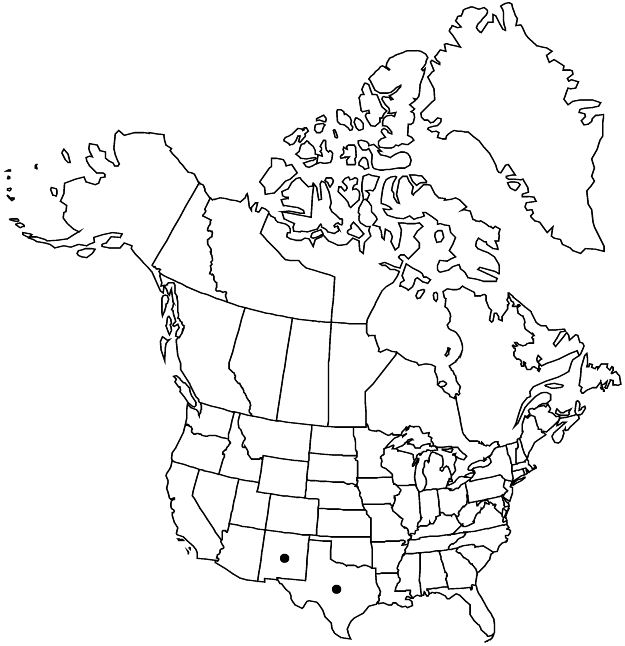Linum schiedeanum
Linnaea 5: 234. 1830.
Herbs, perennial, 20–70 cm, glabrous except for occasional hairs near nodes. Stems erect or spreading, branching at base and in inflorescence. Leaves: proximal in whorls of 4, distal alternate, or mostly whorled or mostly alternate, spreading to ascending; stipular glands present; blade lanceolate to oblanceolate, 10–20 × 2–6 mm, margins entire, of distal leaves ciliate, apex deltate-acute to obtuse. Inflorescences panicles; bracts ciliate. Pedicels 0–1 mm. Flowers: sepals persistent, lanceolate, 2–3.5 mm, margins of inner sepals scarious, glandular-toothed, apex acute; petals lemon yellow, oblanceolate to narrowly obcordate, 2.5–6 mm; stamens 2–5 mm; anthers 0.3–0.7 mm; staminodia usually present, sometimes absent; styles distinct, 1.6–3 mm; stigmas capitate. Capsules broadly ovoid, 1.5–2.5 × 2–2.5 mm, apex sharp-pointed (easily crushed), readily dehiscing into 10, 1-seeded segments, segments falling freely, false septa rudimentary, margins of true septa usually ciliate. Seeds 1–1.5 × 0.6–1 mm. 2n = 36.
Phenology: Flowering Jun–Aug.
Habitat: Open or semishaded areas, calcareous soils.
Elevation: 1200–2800 m.
Distribution

N.Mex., Tex., e, ne, s Mexico.
Discussion
Linum schiedeanum has yellow, broadly bowl-shaped corollas, yellow stamens, and yellow styles and stigmas. The styles are broadly incurved, following the line of the petals, and are held outside the ring of stamens. Staminodia in L. schiedeanum are low, deltoid, and usually two between adjacent stamens, sometimes one or none. J. R. McDill (2009) reported that L. schiedeanum formed a group (L. schiedeanum group) with four other species with whorled leaves occuring from the Guadalupe Mountains of western Texas south to Veracruz. C. M. Rogers (1984) noted that a compact form of L. schiedeanum from sunny areas might warrant more study.
Selected References
None.